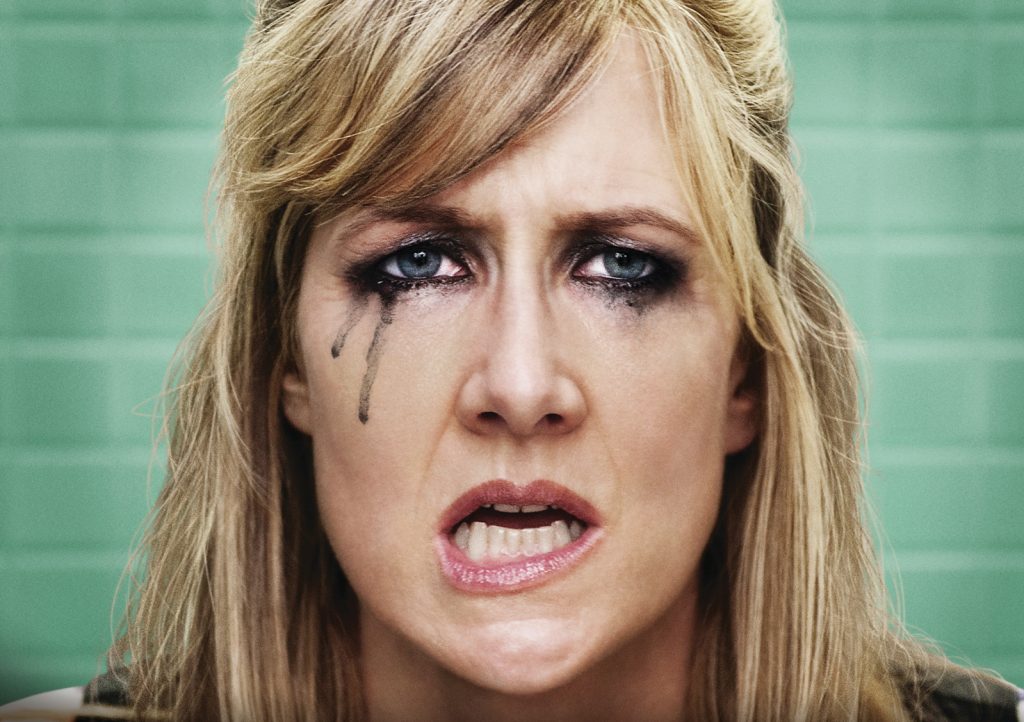Recently someone asked me, “What’s the funniest experience you’ve ever had?” When I thought about it, I realized that everything at the top of my list occurred in the context of spiritual practice. Once, during a weeklong retreat at the Rochester Zen Center, my friend Sarah was given the task of laundering the long brown robe of our teacher, Toni Packer. As soon as Sarah saw she’d been chosen for the task, she began to imagine the care with which she would handle the robe: washing it on the delicate cycle, pulling it out of the dryer at just the right time, lovingly ironing every fold and pleat. When Toni saw the robe, it would confirm that Sarah was, indeed, an extremely special Zen student. But when Sarah pulled the robe out of the dryer, it turned out that she’d forgotten to remove a wad of Kleenex from inside the long sleeves. Every inch of the dark brown fabric was covered with white fuzz. Sarah showed me the robe, and the two of us laughed so hard we rolled around on the floor of the laundry room, clutching our stomachs.
In the new HBO series Enlightened, it’s as though a sacred robe, covered in white Kleenex fuzz, is being pulled from the dryer again and again. The show’s main character, Amy Jellicoe, is played by Laura Dern, a tall, blonde woman of 40-something whose face can instantly morph from girlish to glamorous to downright ghoulish. In the opening scene of the first episode, Amy is sitting on the toilet, sobbing, at her place of work—a glitzy drugstore-supply firm in downtown Los Angeles. She’s just discovered that her married boss, with whom she’s been sleeping, has arranged for her department transfer from “Health and Beauty” to “Cleaning Supplies.” As she bursts forth from the bathroom with rivulets of black mascara streaming down her face, we watch her crash and burn in the mother of all meltdowns. Seeing her boss step into the elevator with two important clients, she pries open the door and screams, “I’ll kill you, motherfucker!”
The elevator slams shut in her face, and the scene cuts to Hawaii, where Amy is completing an intensive rehabilitative retreat. Though we’re not told exactly what the spiritual orientation is, it has a distinctly Eastern/New Age flavor. In a montage of clips, we see Amy baring her soul in group therapy, breathing deeply in lotus position, fingering her meditation beads, writing away in her journal, swimming with sea turtles.
She returns to Los Angeles absolutely radiant with hope and goodwill, convinced that wherever she goes, a golden mantle of well-being will spread out around her. But alas, hidden in every sacred robe is that fateful wad of Kleenex. Amy moves in with her mother, only to find her cranky, distant, and skeptical. (“I’m so happy to see you!” she tells her mother, upon first arriving at her door. “Why?” her mother asks.) She tries to resume her old job, only to find herself shunned and blocked at every pass. With her reservoir of good juju rapidly draining, what she really needs is to breathe deeply and think about those sea turtles in Hawaii. But instead, in the dark of night she drives her car to the home of her former boss and lover—with predictably disastrous consequences.
All this happens in the first episode, and after I saw it I wondered, “Where are they going to go from here?” After all, they’d already shown Amy at the peak of her serenity, the depth of her degradation. How could the roller-coaster ride get any more thrilling?
Since then I’ve seen four more episodes, and though the ride doesn’t necessarily get any more thrilling, I’ve continued to find it riveting. It’s fascinating to see how the karma from Amy’s life before her “enlightenment” continues to hound her. She’s so ready for the clean slate, and she’s genuinely shocked—again and again—when others remember, and still hold her accountable for, her past actions. It’s also fascinating to see the huge blind spots of someone who is so convinced of her own higher consciousness. Laura Dern manages to convey both sides of Amy’s paradox with equal intensity: her fervent desire to live with greater awareness and her absolutely dense self-righteousness. Again and again we see her face flushed with a kind of beatific glow as she delivers a precious insight, proposes an exalted project, or attempts a heartfelt encounter. Then, in the next instant, she’s looking utterly crushed and perplexed as the bluebirds of heaven crap, once more, on her birthday cake.
When my friend Sarah and I were rolling around on the laundry room floor, we were laughing at the spectacle of a punctured ego—it was Sarah’s on this particular occasion, but it could just as easily have been mine. We were laughing together at the great oxymoron of spiritual pride; the naked, primitive drive to be somebody special—in the very place where one has come to divest oneself of the need to be anyone, the better to live in true connection with everyone. For us the laughter was wonderfully, refreshingly cathartic. But what if we hadn’t been able to laugh? That’s Amy Jellicoe’s plight, and it’s part of what makes Enlightened so funny. We laugh at Amy, not with her—but in doing so, we can laugh both at and with ourselves, and all our fellow travelers on the road to liberation. And though Amy never gets the joke and rarely seems to learn from her mistakes, for us there’s the possibility that the next time we’re reverently placing a sacred garment in the wash, we’ll remember the great cosmic trickster who always keeps a wad of Kleenex up his sleeve.
Thank you for subscribing to Tricycle! As a nonprofit, we depend on readers like you to keep Buddhist teachings and practices widely available.
